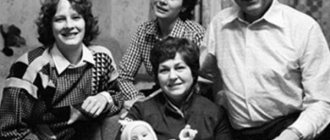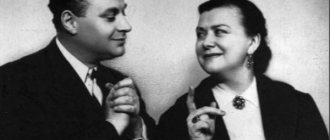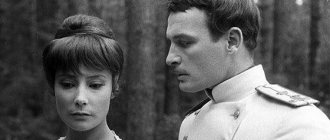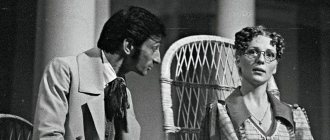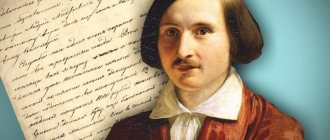The head of Russian Standard, Rustam Tariko, is a typical self-made man, who has made his way from a janitor to the owner of a group of companies, which, according to various estimates, is worth from $5.4 to $10 billion.
It is difficult to say which brand of the Russian Standard holding is better known in Russia - the pioneer bank of express lending or the popular premium vodka. The founder and owner of this brand, Rustam Tariko, made billions without initial capital or nomenklatura connections. It’s not for nothing that entrepreneur Oleg Tinkov put Rustam Tariko in second place after Kopeyka founder Andrei Rogachev in his own rating of “Russia’s gold reserves.”
Innovation and entrepreneurial intuition help Rustam Tariko lead the global expansion of the Russian Standard brand and companies into international markets. His unique knowledge and understanding of consumer needs enhances his involvement in the day-to-day management of companies that have grown to more than 20,000 employees in less than a decade.
CHILDHOOD AND YOUTH YEARS OF RUSTAM TARIKO
Rustam Vasilyevich Tariko was born on March 17, 1962 in the Tatar city of Menzelinsk, Tatar Autonomous Soviet Socialist Republic (Tariko is an ethnic Tatar by nationality). Rustam grew up without a father. His parents divorced when he was one year old.
“Rustam was a good student, but he wasn’t keen on cramming,” Tariko’s class teacher, Lyubov Kuklina, told reporters. “He grew up very independent. His mother raised him alone, worked either in the editorial office or in the district party committee, and periodically went on business trips, but Rustam coped with everything perfectly - he cooked, cleaned, and did the laundry.”
In an interview, Tariko said: “I know what makes me strong: I grew up in an atmosphere of great maternal love. Although she often went on business trips, sometimes she was gone for a whole month, but my mother always sent me parcels with sweets and toys. I understand that I became so happy and successful because my mother gave me so much energy. And I still use this charge.”
Tariko earned his first money... by singing. Rustam organized the then fashionable VIA, a vocal and instrumental ensemble, at the school. At first they performed at school parties, then, probably thanks to their mother, VIA received the official status of an ensemble at the Menzelinsk Palace of Culture. The guys performed at discos and received salaries for it.
“He played the guitar very well, even though he was self-taught,” recalls Tariko’s classmate, now the head of the turbine shop at the Chelny thermal power plant, Alexander Zhbanov. – Performed as a soloist. I remember singing almost the entire evening at graduation. The ensemble's repertoire consisted of songs that were popular at that time. And he himself was a fashionable guy.!”
Here’s what Tariko’s classmate, now a doctor at the children’s clinic in Menzelinsk, Irina Strokina, said in an interview: “When we were at school, there was not the looseness that is inherent in today’s youth. We girls were on our own, and so were the boys. However, it was always very easy to communicate with Rustam. I cannot say that he stood out from everyone else in some way or was head and shoulders above the rest. But the leadership qualities were certainly there.”
The performer of street hits, naturally, was the first boy of the school - long hair, fashionable corduroy pants, all the most fashionable things that could be obtained at that time in Menzelinsk.
“Home alone” is the ideal life for a high school student. Classmates remember with pleasure how they gathered at Rustam’s apartment to listen to music, smoke and drink on the sly from the adults. Tariko also never missed social events in Menzelinsk in the 1970s - he was a regular visitor to discos in the cultural center.
However, Rustam Tariko decided not to connect his life with music, and at the age of 17 he left for Moscow, where he entered the Moscow Institute of Transport Engineers (MIIT), which he successfully graduated in 1989.
Childhood
The future billionaire was born in the city of Menzelinsk, Tatar Autonomous Soviet Socialist Republic, on March 17, 1962. Rustam's parents divorced when the boy was one year old. The entrepreneur’s mother, Roza Nazipovna, worked in the district party committee and often went on business trips, from which she brought toys and sweets to her son. From childhood, the boy learned to be independent, knew how to clean, cook and do laundry.
Businessman Rustam Tariko / Photo from the personal archive of Rustam Tariko
At school, Rustam was a diligent student and was also fond of music. The boy learned to sing and play the guitar. Soon Tariko created an ensemble and performed at school events. With the support of his mother, Rustam achieved official status for the group at the local Palace of Culture, and the guys received an official salary for performing at discos.
After school, Tariko moved to Moscow, where he graduated from the Institute of Transport Engineers. During this period, music faded into the background, because the capital offered other opportunities for earning money.
FIRST MONEY
Mom sent money to Rustam in Moscow, and he returned it back and asked her not to send it anymore, saying that he had his own. He, like his school friends, at first worked as a janitor (the salary was enough even to rent one apartment for four).
Even before receiving his diploma in his senior year, Tariko began working in the travel company of the Italian Emanuella Carboncini “Business Tour”, which was engaged in booking rooms in Moscow hotels for Italian businessmen. “His face seemed smart to me from the very beginning,” the Italian would later recall. “I told him: If you want to make money, help me with one simple matter.” Provide me with access to decent hotel rooms in Moscow. If you succeed, you will become rich."
Carboncini was hampered by the bureaucracy and corruption of Intourist. “I achieved the accommodation of foreigners not only in a limited number of special hotels, but also in other hotels,” Tariko recalls his first successes.
Tariko reasoned that since Intourist interferes with earning money, he will do without it. Rustam went to the director of the Rossiya Hotel. The woman, accustomed to dealing only with big bosses, did not accept the young man. Late in the evening, leaving work, she saw that he was still sitting in the waiting room. Such persistence intrigued her, and she listened to Tariko's proposal. It was quite simple: “You have connections with officials who issue permits to foreigners to enter the USSR. At the same time, for each foreigner “Russia” is paid 3 dollars, and “Intourist” - 70. I have a list of hundreds of businessmen who would like to come to Moscow, but they cannot get permission and a hotel room. Cooperation would solve our problems." Within three days, Tariko placed the first group of Italians in “Russia” and earned $5,000 on commission.
Thanks to Tariko’s efforts, thousands of foreign businessmen visited Moscow until the opening of the “borders” in 1990. In the first month of working at a travel agency, he earned 60 thousand dollars. “Before that, I never had more than 50 dollars in my pocket,” admits Tariko. But besides money, Tariko received something more important: the opportunity to communicate directly with representatives of Italian business - the first and second persons of companies such as FIAT or Olivetti.
In 1990, Rustam Tariko became a consultant for the Italian companies Ferrero, Martini & Rossi. Rustam Tariko came to the representative of Ferrero SpA with a proposal to sell “Kinder surprises” for rubles in ordinary stores. Before this, chocolate eggs could only be bought in currency “Berezki”.
The Italians were initially doubtful. Unlike Rustam Tariko, they still had little idea of how trade would develop in the USSR, and did not predict large sales. The young man was given only one box to try. Tariko had no problem quickly selling “Kinder Surprises” at a time when all domestic chocolates were similar to each other. “I brought to the market not only a high-quality product, but also a product filled with emotional perception - Ferrero Kinder Surprise,” recalls Rustam Tariko, not without pride.
Having assessed the success of the entrepreneur, the company offered him to undergo a year-long training in Luxembourg and become a full-time employee. Tariko went to the duchy, but soon returned back; after the collapse of the USSR, wide opportunities opened up for him.
OWN BUSINESS
Having gained valuable experience and achieved success in the eighties, Tariko realized the potential of new Russian freedoms - the opportunity for all Russian citizens to make their dreams come true. For many years, Soviet people dreamed of purchasing goods and services associated with a luxurious lifestyle in Western countries. Rustam Tariko took advantage of this long-suppressed desire for luxury and invested all his earnings in importing high-quality foreign brands. In 1992, Rustam founded the company Rust Inc., which distributes premium foreign alcoholic beverages.
It all started when Italian businessmen themselves contacted the entrepreneur. He assured them that he would sell as many Martini in two months in Moscow as had previously been sold in a year in the same Berezki. Moreover, a bottle of Martini was expensive back then - $50. And although the first truck with
When the first batch arrived at the Eliseevsky grocery store, the future billionaire unloaded it personally. Despite the astronomical price, people bought Martinis. Tariko fulfilled his promise with dignity and received an exclusive. By 1994, Roust Inc. became the largest Russian importer of expensive alcoholic beverages.
According to Rustam Tariko, this was a revolution for a country where they drank only moonshine, vodka and “Soviet champagne” on holidays. “We have become the largest importer of Martini Bianco in the world. Afterwards, other premium products appeared, which were practically absent in the country. For example, whiskey or Bailey’s liqueur,” recalls the businessman, who earned his first million dollars in 1994.
[edit] Characteristics of the business today
In 2011, Rustam Tariko acquired the Italian company Gancia, known for its sparkling wine and vermouth. It is worth noting that the company’s founder, Carlo Gancia, is the author of the first sparkling wine in Italy. The Gancia wine cellars are included in the UNESCO World Heritage List. In 2013, Rust Inc. bought CEDC and became one of the largest producers of alcoholic beverages in Central and Eastern Europe and the second producer of vodka in the world. Today Rust Inc is a single global group with offices in Moscow, London, Warsaw, Canelli, New York and Toronto. The company owns significant production facilities in Russia, Italy and Poland. The company's alcohol brands are represented all over the world, and annual sales volumes approach 40 million cases. Worldwide recognition of Russian Standard brands would not be possible without compliance with increased requirements for the quality of goods produced and services provided, focus on consumer needs and competent pricing. The group is in a phase of active growth. In 2020, the number of group employees exceeded 12,000 people. Rustam Tariko devotes a significant part of his time to cooperation with charitable organizations, creating opportunities for talented and disadvantaged children to receive a quality education.
| Rustam Tariko refers to the topic “Media Persons” | |
| Significance • Self-PR (on wiki, wikiregistration, article about yourself, video bloggers, in the media) • Punch in the face • Reputation management (squeezing out content) • Hype (zashkvar) | |
| Famous and not so famous people | Ayder Muzhdabaev • Aikol Alikzhanova • Alexander Girzekorn • Alexander Klyachin • Alexander Nevsky • Alexey Babushkin • Alexey Panin • Alena Pisklova • Andrey Andreev • Andrey Ternovsky • Andrey Chernov • Arina Rostovskaya • Arslan Valeev • Artemy Troitsky • Artur Garaganov • Vadim Chernovetsky • Victoria Bonya • Vlad Nekrasov • Vladimir Epifantsev • Vladimir Pozner • Vladislav Bologov • Vyacheslav Kantor • Vyacheslav Semenchuk • Galia Kerey • Gulchehra Bobokulova • Diana Panchenko • Dmitry Baker • Ivan Urgant • Igor Rimmer • Ilya Udachny • Lev Novozhenov • Mikhail Lomtadze • Leonid Khom • Leonid Yakubovich • Marat Izmailov • Maxim Vlasov • Maxim Karbivnichy • Maxim Shchenev • Mikhail Leontyev • Nastasya Samburskaya • Natalya Sergunina • Natasha Oleynik • Nikita Dzhigurda • Nikita Marushchak • Oleg Foka • Olga Buzova • Pavel Volya • Perez Hilton • Rafis Kashapov • Renata Litvinova • Rifat Garipov • Roman Avdeev • Bazooka Hands • Rustam Tariko • Ruslan Kibke • Ruslan Khubiev • Sergey Druzhko • Sergey Evsyukov • Sergey Zhirnov • Sergey Pakhomov • Sergey Filimonov • Stanislav Kondrashov (blogger) • Stas Baretsky • Stasya Sergeeva • Timur Usmanov • Flyur Gallyamov • Yana Grivkovskaya • Mikhail Vechkenzin • Zombie Boy |
| Lists | 10 most important people on the Internet • 30 promising young Muscovites • 33 promising Russians |
| Websites | baginya.org • compromat.name • Compromat.ru • kompromat.wiki • people-archive.ru • tadviser.ru • viperson.ru • zampolit.com |
- People who are not included in other templates are included in the template
VODKA “RUSSIAN STANDARD”
The 1998 crisis brought down the alcohol market in the premium segment, and at the same time Rustam Tariko realized his long-standing idea of his own alcohol brand, designed for wealthy, patriotic Russians. The first application of the new idea was to resolve a truly Russian paradox: in the homeland of vodka - Russia, where the largest vodka market in the world existed - not a single local brand of premium vodka was produced. Rustam Tariko decided to win back Russia’s rightful championship and the title of the homeland of the world’s best vodka. He created the Russian Standard Original brand, which was launched for sale immediately after the August 1998 default. It quickly became the country's top-selling alcoholic beverages market leader. After this, the super-premium brand “Russian Standard Platinum” and the ultra-premium brand “Empire” were released, which became leaders in their categories. Over 1.4 million cases of Russian Standard vodka are sold annually, which is exported to 40 countries.
According to Tariko's plan, Russian Standard should be as associated with Russia as Coca-Cola is with the USA, Sony with Japan, and Christian Dior with France. “I put my childhood friend in charge of quality control. He obeys no one but me. I told him: “If you suddenly feel that something is wrong, just stand at the entrance of the plant and don’t let the truck out, no matter what they tell you.” Director for me. But compared to what we needed, this is about the same as producing a Mercedes according to GOST Zhiguli. Our vodka is exactly “Mercedes,” says Tariko.
Vodka production until 2006, when Tariko built his own distillery, was carried out at the St. Petersburg Distillery. Liviz did not produce alcohol on its own, so Russian Standard purchased raw materials externally. At the same time, he managed to ensure the stability of the quality of vodka by supplying the same alcohol.
When the management of the distillery learned about the intention of Tariko and his company to transfer the production of their vodka from Liviza to their own plant, they turned to Rospatent with a demand to cancel the Russian Standard trademark. In the end, everyone remained to their own devices; the court did not satisfy the demands of the offended party.
In one of his conversations with journalists, Ruslan Tariko, answering the question of what distinguishes good vodka, revealed the secrets of preparing the alcoholic drink produced by his company: “In short, good vodka is pure and at the same time tasty vodka. There are a lot of tasty vodkas, but they are unclean. And vice versa - like Absolut. The main thing in vodka is the raw materials; it has historically been a very cheap product in Russia. The production of vodka always used grain, which was not suitable for the production of bread. The alcohol obtained in the process had a bunch of disadvantages - it was bitter, unclean, burned and smelled bad. We had to get rid of this, and we calculated that the best grain was winter wheat of the highest category. It should not be overdried or too wet; grain storage conditions are of fundamental importance. The water used in its production is also important in vodka. If there are a lot of different minerals in it, they react with alcohol and create new chemical compounds that also affect the taste. All this needs to be monitored. We built a plant, now we are thinking about buying or building our own distillery, we want to buy several tens of thousands of hectares in the Black Earth Region and grow wheat there.”
In 2006, the Russian Standard alcohol production plant was opened in St. Petersburg, and in December of the same year, Tariko bought the domains Vodka.com and Vodka.ru for the international promotion of vodka and the Russian Standard brand. The first was purchased from the American company Nett Corp. (through the mediation of broker Sedo.com, part of the German group United Internet AG) for $3 million, the second from Artemy Lebedev for $50 thousand.
In November 2011, the Russian Standard group acquired a 9.9% stake in the Polish alcohol holding Central European Distribution Corporation, one of the largest vodka producers in the world. Tariko later increased his stake in CEDC to 19.5%. In April 2013, experiencing severe financial difficulties, CEDC filed for bankruptcy. And in 2013, as part of the debt restructuring of CEDC, Rustam Tariko and his Russian Standard acquired 100% of the shares of this holding. As a result, Russian Standard added more than ten world-famous alcohol brands to its portfolio (brands such as Green Mark, Parliament and Zhuravli in Russia, as well as Zubrowka, Absolwent and Soplica in Poland) and took second place in world in terms of vodka production volumes.
First business projects
Rustam Tariko founded the first company back in the USSR, in the late 80s.
The company helped foreign tourists who wanted to visit the Soviet Union and then Russia find a hotel. But already in the early 90s, Tariko began to successfully engage in the alcohol business. The entrepreneur founded, which began to import foreign goods to Russia. Quite quickly, a significant part of imports was made up of alcoholic products.
Rustam Tariko in his youth
Already in the mid-90s, Tariko’s enterprise became one of the largest Russian companies importing alcohol from the USA and Europe. The businessman’s company brought Martini vermouth, Cointreau liqueur and other elite drinks to Russia, which quickly became popular. The success of the Tariko company is also explained by the fact that the businessman was able to build a developed distribution network for goods throughout Russia.
Soon Tariko created a new company called Russian Standard. According to the businessman, the new brand was supposed to symbolize qualitative changes in the life of Russia. The brand had to be associated with quality products that were available to all consumers.
The new company began not only to supply alcoholic beverages from abroad, but also to produce premium Russian vodka. It is noteworthy that at that time this segment was not represented at all in Russia.
Over the years, Russian Standard has become a symbol of premium alcohol in the Russian Federation. Soon the company expanded the line of alcohol it produced. This is how the brands “Russian Standard Platinum”, “Russian Standard Gold” and “IMPERIA” appeared. This brand began to belong to the “super luxury” category. Tariko successfully developed alcohol production using advanced business practices and effective acquisitions. For example, in 2011, the businessman’s structures acquired the ancient Italian company Gancia, one of the world leaders in the production of wines and vermouth, founded in the mid-20th century. In 2013, the Russian Standard holding, through the Rust Group of Companies, which is part of its structure, acquired the CEDC company, a manufacturer of alcoholic beverages. After this, Russian Standard became one of the largest alcohol producers in Central and Eastern Europe. "Rust" continues to increase its momentum. Thus, the company has production facilities in Poland, Italy and Russia. Annual sales have already reached 40 million boxes.
RUSSIAN STANDARD BANK"
By the end of the 90s, Rustam Tariko gained fame in business circles for his ambition and willingness to take risks, but at the same time he turned out to be extremely lucky. He bought the little-known Agrooptbank, renamed it Russian Standard and started with a product then unknown in Russia - consumer express lending. Loans without collateral or guarantors right in shopping centers, issuing loans in cash, and then sending credit cards by mail - no bank offered this. True, no bank at that time charged the same huge remuneration for its operations.
The investment in the bank itself amounted to $100 thousand - that’s how much Tariko spent on the license and bringing its balance sheet to zero. Exactly 10 times more was paid to McKinsey for developing the strategy and business plan, and about $20 million more was spent on issuing the first loans. According to McKinsey's business plan, the bank was supposed to reach profitability in 2003, however, according to Tariko, the break-even point came already in 2001. The bank's business doubled every year. In 2004, Russian Standard ranked 2nd in terms of consumer loans in Russia, second only to Sberbank of Russia. And by the end of 2004, Rustam Tariko valued his bank at $1 billion.
However, bankers, as before, do not take Tariko seriously, despite the fact that he earns much more than many of them. “It’s hard for them to understand this, because they’ve been bankers all their lives, and then someone came and rushed in,” says Oleg Tinkov.
Tariko made a revolution, laying the foundation for a consumer society. He suggested “not putting off life until tomorrow” and taking out loans from his Russian Standard bank, the first consumer lending bank. Did Tariko take a risk? Undoubtedly. But he explains that there is a mathematical model (very complex) that allows you to calculate risks. Probability theory was one of his favorite subjects at MIIT. By 2005, Russian Standard had issued loans to every seventh Muscovite.
In 2005, Russian Standard became the exclusive operator of the American Express system in Russia. Rustam Tariko has been working towards this contract since the foundation of the bank - 5 years. In an interview with Profile magazine, he said that the negotiations were difficult. “The progress in these negotiations was directly proportional to my success in Russia,” Tariko added.
The “misunderstanding” in 2006, which caused a whole wave of indignation on the part of clients, was that the annual 23% indicated in the contract was in fact just a fiction. In fact, borrowers are forced to pay amounts almost twice as large as those stated in the agreement. As it turned out, clients simply did not pay attention to the clarification written in fine print, stating that by signing this agreement, the client does not object to receiving a bank card on which interest will be charged. Moreover, no annual interest was specified in the contract at all. As a result, a lawsuit was filed by the Blockpost organization, which defended consumer rights. However, the application was rejected by the court: the motivation was that the clients voluntarily signed the agreement, therefore there are simply no grounds for filing claims against the bank.
In 2007, the consumer lending boom reached its peak (people hardly thought about whether it was worth taking out a loan), and hidden commissions began to interest not only bank borrowers, but also such structures as the Central Bank of the Russian Federation, the Federal Antimonopoly Service and Rospotrebnadzor. As a result, Russian Standard reveals unimaginable interest rates of the past year: 79.2% for loans to individuals and 44.3% for consumer loans. Such “exorbitant rates” were explained by a “high percentage of non-returns.” Rustam Tariko was invited to the Prosecutor General's Office of the Russian Federation, where the issue of consumer lending was put on the agenda, after which Russian Standard canceled all hidden commissions and reduced the interest rate. This cost the bank $200 million in lost profits, and the precedent itself led to the regulation of the effective interest rate in the banking sector. Tariko himself commented on the conflict to the Vedomosti newspaper, as always, optimistically: “When you are practically the first to launch a business of this scale, you are faced with a large number of unknown elements: the degree of risk, the cost of money, operating expenses, investments. A loan to an individual is not a loan to Gazprom.”
In 2009, Russian Standard showed a loss of 4.5 billion rubles, but in the first half of 2010 it managed to receive more than 2 billion rubles in profit and take 16th place in the ranking of the most profitable banks according to Kommersant magazine. Money".
When Rustam Tariko is asked why his holding does not go for an IPO (IPO or Initial Public Offering stands for “initial public offering” of shares to a wide range of investors on a specially organized exchange platform), he answers, “People do IPOs when they don’t have enough money, we have enough of them. We are a profitable company. And if it becomes public, there will be some people sitting on the supervisory board, I will need to report to them. Why do I need it?"
To date, 193 representative offices and 9 branches of Russian Standard Bank have been opened in Russia. In addition, 25 regional departments have been opened on the territory of Ukraine. The employees of Russian Standard Bank are about twenty thousand people.
PERSONAL LIFE OF RUSTAM TARIKO
Rustam Tariko is not only included in the ratings of self-made man, whose fortune is estimated at millions of dollars, but also in the list of the most extravagant billionaires in the world, as “the best party organizer.” This is exactly the regalia he deserves, according to the Financial Times.
Tariko is the owner of a house in Sardinia, where he likes to relax on a grand scale: he held parties and various kinds of get-togethers here. However, lately the businessman prefers respectable events, for example, the annual receptions with Bill Gates.
Tariko is also known for his generous gestures: in 2008, at a charity reception for 320 thousand euros, he acquired the right to name a Madagascan pink orchid in honor of his then common-law wife. And in 2011, she provided support for a grand ballet gala evening in Rome.
Rustam Tariko's passion is airplanes, cars and women. The businessman was one of the first to buy a personal Boeing, and he copes with the role of a pilot on his own.
“I don’t separate work and personal things. Everything personal for me is work, and all work is personal. That's why I never work and never rest. This is how I live"
The billionaire has a large number of cars in his fleet, including Maybach and Mercedes SLR. He is also the owner of the fastest boat, whose name is “Terrrible,” which has three engines of 1000 horsepower each.
Tariko's weakness is women. The billionaire states that a woman must combine beauty, intelligence and energy, while a man only needs to have one quality - intelligence.
Rustam Tariko is not officially married, but has three children: a son (Rustam, born 2007) and twin daughters (Eva and Anna, born November 18, 2003).
Biography and first experiences in business
Rustam Tariko was born
March 17, 1962 in the city of Menzelinsk, Tatar Autonomous Soviet Socialist Republic, USSR[en]. His mother, Roza Nazipovna, was an employee of the district committee of the CPSU. From childhood, the boy grew up as a responsible and independent child. As a child, he learned to sing and play the guitar. He organized one of the popular musical groups of those years - a vocal and instrumental ensemble. Their performances at school evenings were sold out. They performed on dance floors and discos, in the local Palace of Culture. Later he repeatedly noted that he was grateful to his mother for the love, care and active life position instilled in him from childhood.
| Rustam in childhood |
Rustam received his higher education in Moscow, where he moved at the age of 17 to study at the Moscow Institute of Transport Engineers. Tariko studied at the Faculty of Economics. Being an independent young man, he worked part-time as a janitor. After graduating from university, he began doing business and already in the late 80s the entrepreneur’s first company appeared; it provided intermediary services to tourists coming to the USSR. The company was engaged in the accommodation of foreign tourists in hotels. Possessing extraordinary personal qualities, Rustam acquired useful contacts among representatives of foreign business circles and became a consultant for the Ferrero Spa brand (chocolate manufacturer) and Martini & Rossi (exporter of the famous drink).
R. Tariko proposed to his employers to organize the retail sale of Kinder Surprise eggs in regular stores, previously sold exclusively in the Beryozka currency trading establishments. His initiative was a success and was not left without encouragement - the company transferred him to the staff and sent him for training in Luxembourg. In addition, he subsequently entered into a contract for the right to sell Martini, ensuring a successful start to his alcohol business.
In the early 90s, having accumulated capital, Tariko founded. The new company was engaged in the supply of imported goods to Russia. The active work of the Tariko company allowed Russian consumers to gain access to quality goods from abroad.
A few years later, the businessman’s enterprise turned into one of the leading players in the market for the import of premium alcohol brands from Europe and the USA[en]. The Tariko company was the first to supply Martini, Cointreau liqueur, Johnnie Walker whiskey and other alcoholic drinks that became popular to Russia. The entrepreneur built an extensive network of product supplies throughout Russia, which also contributed to strengthening the company’s position.
In 2000, the entrepreneur graduated from INSEAD Executive School in France.
In the photo: Rustam Tariko Ensemble:
Creation of the Russian Standard brand
After this, Tariko began to implement a new idea. He decided to create a brand that would be associated with quality products for the mass consumer - just as Sony is with Japan, and Coca-Cola is with the USA. It was based on the idea of “affordable luxury,” as the businessman himself described it. This is how the Russian Standard brand appeared. At first, this brand of vodka was produced in (St. Petersburg). But in 2006, Tariko opened his own factory. In December 2006, he bought the Internet domains Vodka.com and Vodka.ru for the international promotion of vodka and the Russian Standard brand. The first was purchased from the American company Nett Corp. (through the mediation of broker Sedo.com, part of the German group United Internet AG) for $3 million, the second - from Artemy Lebedev for $50 thousand.
Soon the new company filled a niche that had remained vacant for a long time. The company began producing premium Russian vodka, although previously there were no such products in the country. Over time, Russian Standard began to be closely associated with premium alcohol.
The company began to produce products under new brands. The superlux brand “IMPERIA” was presented. Alcohol was also produced under the brands “Russian Standard Platinum” and “Russian Standard Gold”. The brands soon became category leaders.
Today, the company's products are popular not only in Russia, but also in other countries. Thus, alcohol is exported to 85 countries around the world, and more than 3.5 million decalitres of Russian Standard vodka are sold annually.
In 2011, Tariko acquired the world-famous company Gancia, which produces Italian wines and vermouth. This is one of the oldest enterprises in its industry, as it was founded back in 1850. The Gancia wine cellars have been recognized as a UNESCO World Heritage Site.
In 2013, Tariko's alcohol empire expanded through the acquisition of CEDC. The deal was completed through the Rust Group of Companies, part of Russian Standard. After this, Tariko's enterprise became one of the largest producers of alcoholic beverages in Central and Eastern Europe. GC "Rust" has its own production facilities in Italy, Russia and Poland. Each year the company sells about 40 million boxes of its own products.
Innovative banking services
In the late 90s, Rustam Tariko founded Russian Standard Bank. The bank began to offer its clients services that did not yet exist in Russia in those years. For example, Russian Standard was engaged in unsecured lending. The new bank also began issuing credit cards, which in those years were considered a product of the West. In fact, it was Russian Standard that created the credit card market in Russia. In 2005, Russian Standard received the status of the exclusive operator of the AmericanExpress payment system.
Today Russian Standard is the largest private bank in the Russian Federation with a client base exceeding 28 million people. As of 2018, the number of Russian Standard employees exceeded 12 thousand people. The company achieved such successes due to competent management and management’s willingness to try something new. As experts say, Tariko always accurately guessed consumer preferences.
At the same time, Rustam Tariko is actively involved in charity work. The businessman works closely with foundations that help talented children[en] from disadvantaged families. Thanks to the generous donations of the businessman, children are given the opportunity to receive a quality education.
In his interviews, the businessman noted that when making decisions, he counts on his luck, but also uses all existing methods of analysis, forecasting, building mathematical models, and probability theory was one of his favorite subjects while studying at the university.
Personal life
Rustam Vasilyevich has three children: two twin daughters (Anna and Eva, born on November 18, 2003) and a son, Rustam (born in 2007).
Hobbies
On February 14, 2008, at the charity “Love ball”, organized by model Natalya Mikhailovna Vodianova at the Tsaritsyno museum-estate in Moscow, R.V. Tariko, for €320,000, acquired the right to name a pink orchid discovered in Madagascar in 2007 after his girlfriend.
He owns a villa in Sardinia, purchased from the wife of the Italian statesman and politician Silvio Berlusconi, and a mansion on Miami Beach.
Loves relaxation, social events and parties. In 2011, he supported the organization of a bright and spectacular ballet evening in Rome.
He likes speed - Rustam Vasilyevich owns a high-speed boat called Terrible (translated as “inspiring fear and horror”), and independently controls his personal Boeing aircraft. Its fleet includes many exclusive and expensive luxury cars (including the German Maybach and the Mercedes SLR sports supercar).
In the photo: Rustam Tariko's plane:

